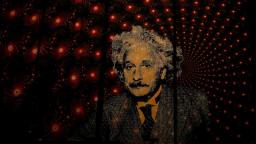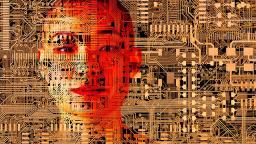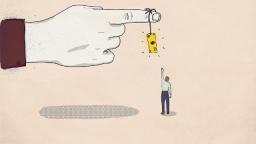If the future, your buffalo chicken wings will fly to you. Drone delivery is going to bring so much more than food, however; these aeronautical robots will, in time, herald the end of private ownership in favor of a sharing economy. And thus, Astro Teller explains why your next home will need a drone landing pad.
Astro Teller is a Hertz Foundation Fellow and recipient of the prestigious Hertz Foundation Grant for graduate study in the applications of the physical, biological and engineering sciences. With the support of the Fannie and John Hertz Foundation, he pursued a PhD in artificial intelligence at Carnegie Mellon University.
The Hertz Foundation mission is to provide unique financial and fellowship support to the nation’s most remarkable PhD students in the hard sciences. Hertz Fellowships are among the most prestigious in the world, and the foundation has invested over $200 million in Hertz Fellows since 1963 (present value) and supported over 1,100 brilliant and creative young scientists, who have gone on to become Nobel laureates, high-ranking military personnel, astronauts, inventors, Silicon Valley leaders, and tenured university professors. For more information, visit hertzfoundation.org.
Astro Teller: The unmanned aerial vehicle project at X, which we call Wing, has as its aspiration to remove the bulk of the remaining friction from how we move physical things around in the physical world, particularly the so-called last mile problem. If you look at the history of how physical things have been moved around in the physical world, every time a chunk of the remaining friction was removed from that process, boats, planes, trains, the automobile, the Pony Express, the mail system, every one of these things as we got more organized and removed cost and complexity from how physical things got moved around in the world the world became so different that it was impossible before hand to even predict how different and how much better it would be on the other side of that introduction. We take for granted the remaining friction as though it's natural and will continue forever.
If you could have anything that would fit in a bread box brought to you within one or two minutes, you still have to pay for the thing that's in the breadbox but it could be brought to you nearly for free, then our world would be radically different. Those batteries that are sitting in a drawer in your house or apartment right now discharging, you have those batteries, you're wasting the planet because you think you might need a few of those batteries before they fully discharge on some Christmas morning or something. But if you believed you could have any shaped battery you want just in the moment you need it you wouldn't bother holding all those batteries. You probably have a hammer in your house or apartment. Why do you have that hammer? You almost never use it. And we all have to have a hammer for the occasional moment when we want the hammer. But we could probably share one hammer around 10,000 of us. Think how much richer the world would be if we could have that. How are we going to make it so that you could have the hammer just appear within a moment or two when you want it? You say I want to hammer, you get a cup of coffee at the most and the hammer is there.
And our proposal for how to do that is that you can make small vehicles that fly through the air quietly and very safely and bring to you whatever you want. Our prediction is that at first society will adopt these for the use of delivering food. Food is something that almost everybody uses and that they use on a very regular basis. There's already a very robust food delivery market and people express an interest in having a lot more delivered to them, with respect to food. So that is likely to be the early adoption of this technology. But the long run promise of being able to move things around inside of cities and suburban areas in particular without having to create more traffic congestion, without of the carbon footprint that comes from large trucks moving packages around, without the sound and safety problems produced by large trucks moving around our city, all of those problems can be solved by flying what you want what you need right now to you through the air.
We're public about the fact that we did more than a thousand flights last year in Wing and I would like to see at least 100 times that many this year and 100 times as many the year after that and I don't think that that's at all out of the question. There are regulatory conversations to be had and demonstrations of safety to be proven as we step through this process in the United States and in other countries. And it's important that we push hard on the technology but also work thoughtfully and responsibly with the regulators to demonstrate the safety and to build their confidence in what we're doing as we take each incremental step.





